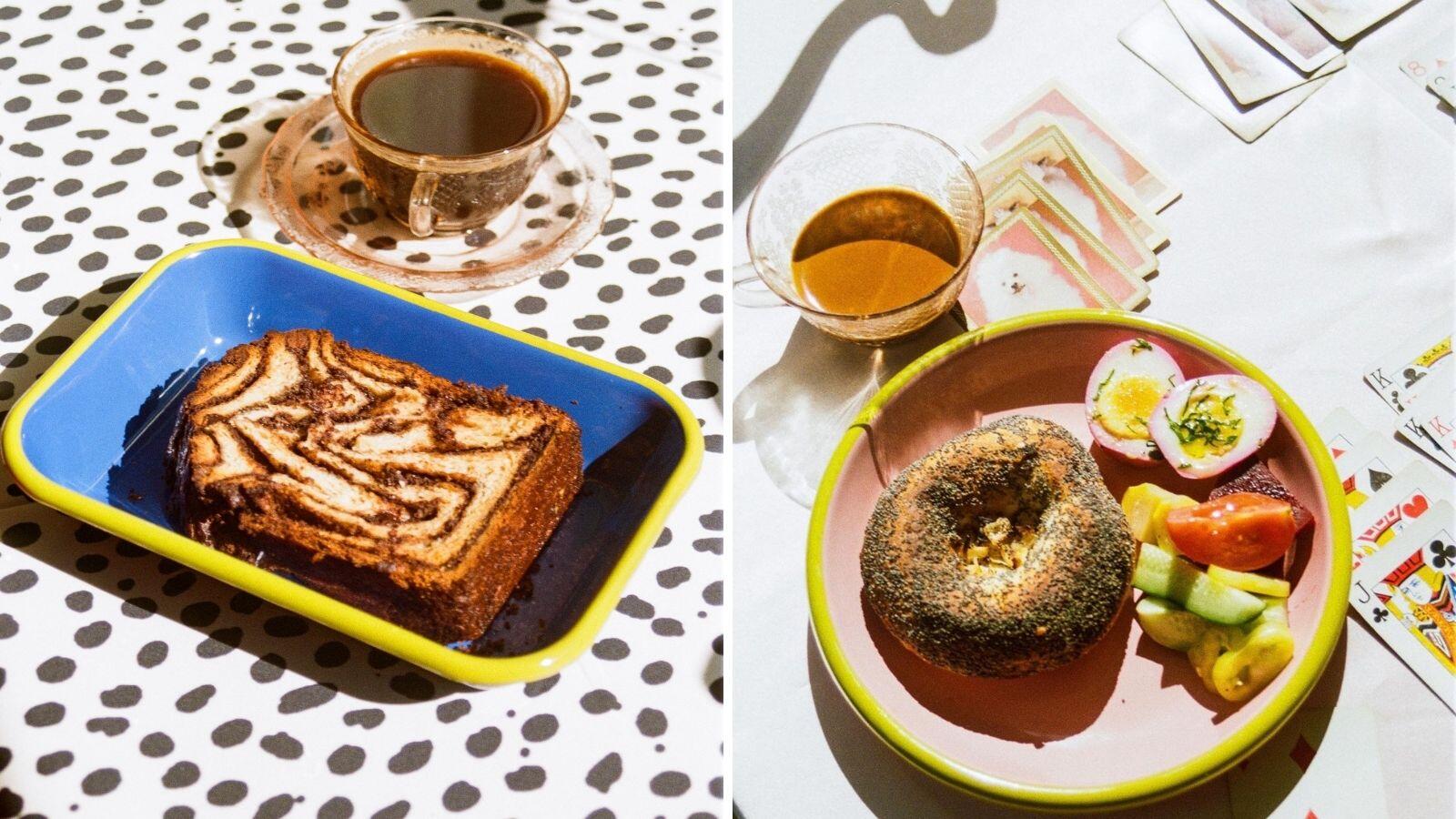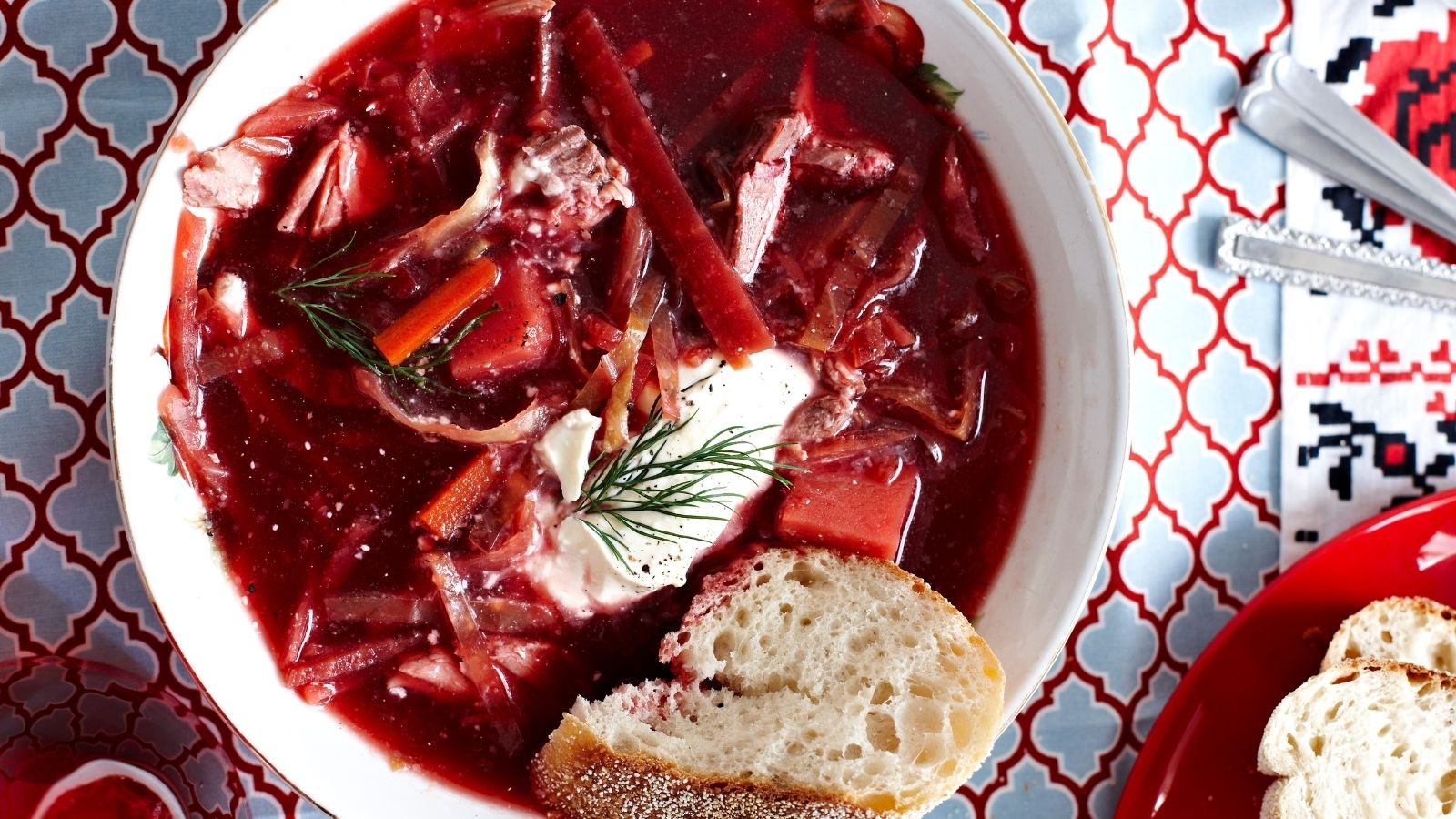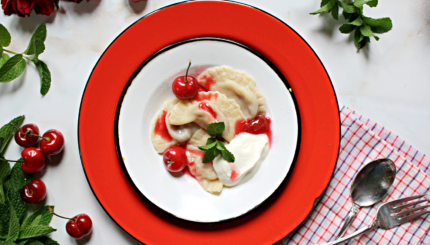Six months before the war in Ukraine began, restaurateur and chef Laurence Faber and his partner, Emily Williams, took a heritage trip to Otaci, a small village on the Ukrainian/Moldovan border. The trip not only changed their lives but it also changed the food scene in Knoxville, Tennessee.
Faber’s great-grandparents came from Otaci. They fled their shtetl because of the many pogroms there in the 1920s, and made their way to the United States. Faber and Williams traveled to Eastern Europe to learn about the food of Faber’s ancestors.
Great-grandmother Phyllis Faber’s Ukrainian-Jewish specialties– mini-knishes, vareniki (dumplings), eggplant salad and chicken soup— were the stuff of family legend. But her recipes had never been written down – or, if they were, were nowhere to be found.
Like his great-grandmother, Faber had serious food cred of his own. After eight years cooking and baking at the world-renowned Blackberry Farm resort near Knoxville, Faber started a babka business with Williams, and then the two opened a pop-up in town called Hi Baby that explored Israeli and Palestinian food and the influence they had on each other. Still, he was drawn to the food of his father’s family.
The Nosher celebrates the traditions and recipes that have brought Jews together for centuries. Donate today to keep The Nosher's stories and recipes accessible to all.
“I had been cooking food from all over the Middle East, like Palestinian, Israeli and Turkish,” said Faber. “I was trying to figure out a food that was more personal to who I was. I wanted something that I could dive into so I could learn more about myself and my family.”
The results of that self-exploration are now available for all to experience with Faber and Williams’ latest Knoxville pop-up. Potchke Deli opened at the end of March, 2022. The menu includes classic foods from Ukraine — like borsch and eggplant salad — subtly flavored with locally foraged herbs and flowers. And while you might not expect a restaurant featuring bialys, babka, borscht, and blintzes to be popular in Tennessee, it is.
“I felt confident,” said Faber, “that our community would accept anything new as long as it tasted good and was served with hospitality.”
The staff at Potchke can barely keep up. “We have surpassed what we ever thought we would do in sales,” said Faber. On any given day, half of the menu is sold out.
Because “deli” is part of the restaurant’s name, many visitors to Potchke are initially disappointed, “that we don’t serve pastrami,” said Faber.
In contrast to most other Jewish delis that serve mile-high cured meat sandwiches, Potchke takes a different approach. Except for the matzah ball soup, which is made with chicken, there is no other meat or poultry dish regularly on the menu. “But we say, try this!” said Faber. “Try this blintz or this bialy! And usually it works.”
The blintzes Potchke serves are not your bubbe’s blintz. The Yiddish word “potchke” means to fuss with or to mess around, both of which are apt descriptions for Faber’s food style. For example, his potato blintzes are filled with scrambled eggs, roasted potatoes, caramelized onions and a Georgian spice called khmeli suneli, which is a mix of coriander, dill, basil, bay leaf, marjoram, fenugreek and parsley. The blintzes are topped with avocado labneh and Calabrian chili oil, fresh herbs and radishes.
Faber’s gefilte fish, which was on the menu for Passover, came with crispy trout skin, caviar and a horseradish béarnaise sauce. The consistently most popular menu item is a lox bialy— salmon from Acme smokehouse in New York paired with Potchke’s house-made “everything” bialy with crushed garlic and dill, shmeared with scallion cream cheese, and covered with a salad of watermelon radishes, edible flowers, dill, raw onion and tomato and piquillo pepper relish.

During the couple’s trip last fall, they traveled through the Carpathian mountains along with a guide, twelve Ukrainian chefs and other chefs from around the world. They foraged mushrooms, berries and herbs and made dishes based on those ingredients. They spent a lot of time in Odessa, which had had a large Jewish population before World War II, and they were served, said Faber, “the best gefilte fish I had ever had in my life”.
He had several “Aha!” moments during his trip to the Old Country.
“The biggest misconception about Jewish food in general is that it is meat-heavy,” said Faber. “But nobody’s great-grandmother in Ukraine ate giant pastrami sandwiches.” Ukrainian food, he said, is about “being resourceful with things that are precious, like meat and foraged mushrooms.” Stuffed cabbage, for example, a classic Ukrainian and Jewish dish, is one way to stretch your meat and utilize produce.
When it was founded, the plan was for Potchke Deli to be a one-year placeholder for another restaurant that Faber and Williams have in the works. As with Potchke, their new eatery is heavily influenced by what the couple learned during their heritage trip. The cuisine of this yet-to-be-named restaurant will be “pinpointed on Ukrainian and Moldovan Jewish recipes,” said Faber.
Until then, there is Potchke with its creative and ever-changing menu where diners can get a fresh take on babka, or meatless Ukrainian-style hot borscht, served with little garlic rolls called pampushki. Last week, a Ukrainian poppy seed cake (pletinka zmakom) was on the menu. This week foraged ramps will be mixed into the cream cheese or pickled as a side dish with the white fish melt. All of which can be washed down with seltzer flavored with local mountain mint.
Despite their original plans, Faber hopes they can keep Potchke open indefinitely. All it comes down to is if they can properly staff two restaurants at once, while maintaining the quality.
“Like the name implies,” said Faber, “Potchke is really fussy and it takes a certain person to garnish a bialy with as many things as we do! So we’re always looking for the special kind of people that take pride in unnecessary fussiness.”



